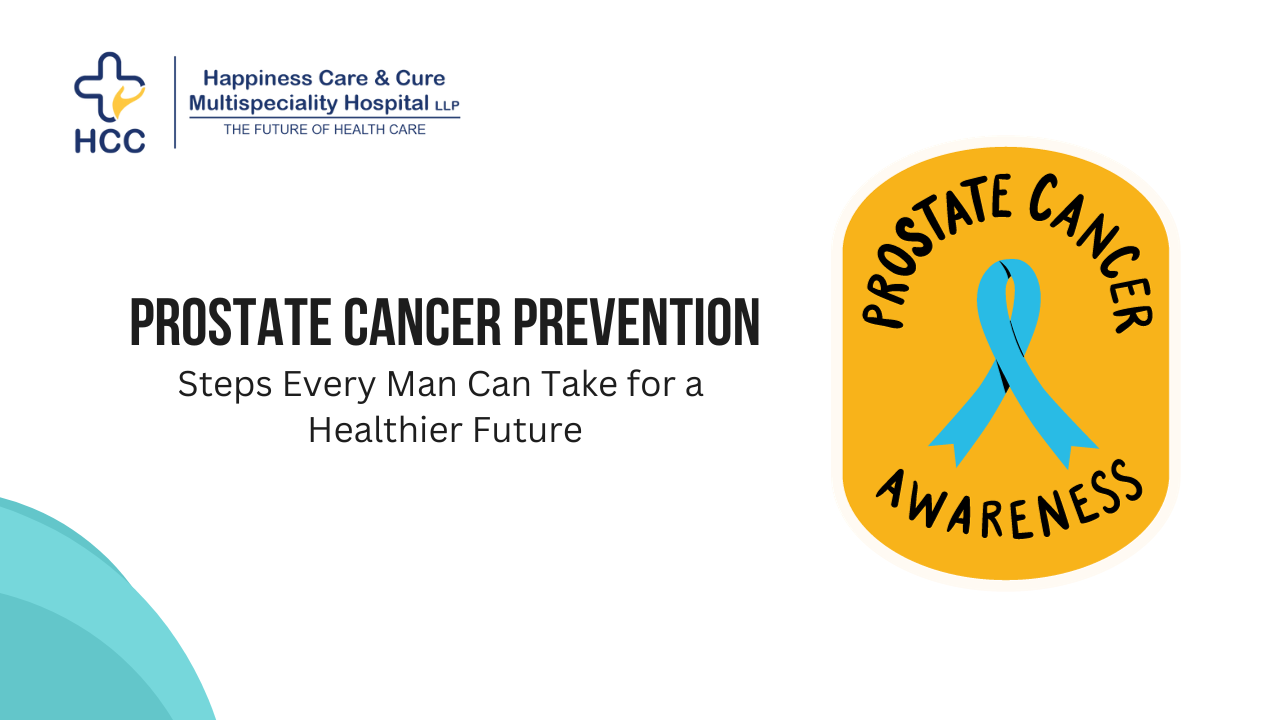
Prostate cancer is a prevalent concern among men, impacting lives and health in significant ways. However, armed with the right knowledge and preventive measures, individuals can substantially reduce their risk of developing this condition. We, as a collective, aim to empower men with actionable steps that can pave the way for a healthier future and diminish the chances of prostate cancer.
Understanding Prostate Cancer
Before delving into prevention strategies, comprehending what prostate cancer entails is pivotal. Prostate cancer originates in the prostate gland, a crucial component of the male reproductive system. The gland's primary function involves the production of seminal fluid. Cancer in this gland often progresses slowly and may not exhibit symptoms in its initial stages.
Regular Medical Check-ups and Screenings
Regular health check-ups, including specific screenings for prostate cancer, are paramount. The Prostate-Specific Antigen (PSA) test is a valuable tool in detecting potential issues early on. While controversies exist surrounding its accuracy, it serves as an essential initial step in identifying abnormalities. Men should discuss the benefits and limitations of the PSA test with their healthcare providers.
Maintain a Balanced Diet and Weight
Dietary habits significantly influence overall health, including prostate health. A diet rich in fruits, vegetables, and whole grains, while low in saturated fats and red meat, is beneficial. Studies suggest that a diet high in processed foods and unhealthy fats may increase the risk of prostate cancer. Moreover, maintaining a healthy weight through regular exercise can contribute positively to reducing this risk.
Embrace an Active Lifestyle
Regular physical activity not only aids in weight management but also plays a crucial role in preventing various diseases, including prostate cancer. Engaging in at least 150 minutes of moderate exercise per week can significantly lower the risk. Activities such as brisk walking, jogging, swimming, or cycling contribute to overall health and well-being.
Limit Alcohol Consumption and Avoid Tobacco
Excessive alcohol consumption has links to numerous health issues, including an increased risk of prostate cancer. Moderation is key; limiting alcohol intake can positively impact overall health. Equally important is avoiding tobacco in any form. Smoking has detrimental effects on overall health and is associated with an elevated risk of developing prostate cancer.
Stress Management and Mental Health
Stress is a silent adversary that can compromise immune function and overall well-being. Chronic stress can exacerbate various health conditions, including prostate cancer. Implementing stress management techniques such as meditation, yoga, or mindfulness can significantly reduce stress levels, promoting a healthier life.
Stay Informed and Proactive
Awareness and education are crucial weapons in the fight against prostate cancer. Staying informed about risk factors, symptoms, and advancements in detection and treatment options empowers individuals to make informed decisions about their health. Proactiveness in seeking medical advice upon noticing any irregularities is vital for early detection and treatment.
Conclusion
Prostate cancer prevention involves a multi-faceted approach encompassing lifestyle modifications, regular screenings, and a proactive attitude towards health. By adopting these measures, men can significantly lower their risk of developing this prevalent and potentially life-altering condition.
FAQs
Q1: Is age a significant factor in prostate cancer risk?
A1: Yes, the risk of prostate cancer increases with age, especially for men over 50.
Q2: Can a healthy diet reduce the risk of prostate cancer?
A2: Absolutely, a diet rich in fruits, vegetables, and low in saturated fats can lower the risk.
Q3: Are there any genetic factors contributing to prostate cancer risk?
A3: Yes, having a family history of prostate cancer can increase one's susceptibility to the disease.
Q4: What role does exercise play in preventing prostate cancer?
A4: Regular exercise helps lower the risk by promoting overall health and well-being.
Q5: Is there a correlation between smoking and prostate cancer?
A5: Yes, smoking increases the risk of developing prostate cancer.
Q6: Are there specific symptoms to watch out for?
A6: Symptoms may include difficulty urinating, blood in urine, or erectile dysfunction.
Q7: Can stress impact the risk of prostate cancer?
A7: Chronic stress can compromise immune function, potentially increasing the risk.
Q8: How often should men get screened for prostate cancer?
A8: Screening frequency depends on individual risk factors, typically starting at age 50.
Q9: Are there alternative treatments for prostate cancer?
A9: Various treatment options exist, including radiation therapy and surgery.
Q10: Can herbal supplements prevent prostate cancer?
A10: While some supplements may have potential benefits, consult a healthcare professional before use.
Q11: Is prostate cancer preventable?
A11: While not entirely preventable, lifestyle changes can significantly reduce the risk.
Q12: Can obesity increase the likelihood of prostate cancer?
A12: Yes, obesity is linked to a higher risk of developing prostate cancer.
Q13: Are African American men at a higher risk of prostate cancer?
A13: Studies show that African American men have a higher risk compared to other ethnic groups.
Q14: Can hormone therapy lower the risk of prostate cancer?
A14: Hormone therapy is primarily used for treatment, not prevention.
Q15: Does consuming dairy products impact prostate cancer risk?
A15: Some studies suggest a potential link between high dairy intake and increased risk.
Q16: Can regular ejaculation reduce the risk of prostate cancer?
A16: Research indicates that regular ejaculation may have a protective effect.
Q17: Are there environmental factors contributing to prostate cancer?
A17: Exposure to certain chemicals or toxins may increase the risk.
Q18: Can frequent cycling affect prostate health? A18: Prolonged pressure on the prostate from cycling may potentially impact prostate health.
Q19: What's the role of vitamin supplements in prostate cancer prevention?
A19: Evidence on the effectiveness of vitamin supplements in prevention is inconclusive.
Q20: Is there a link between sexually transmitted infections and prostate cancer?
A20: Some studies suggest a possible association between certain STIs and increased risk.
Make an Appoinment